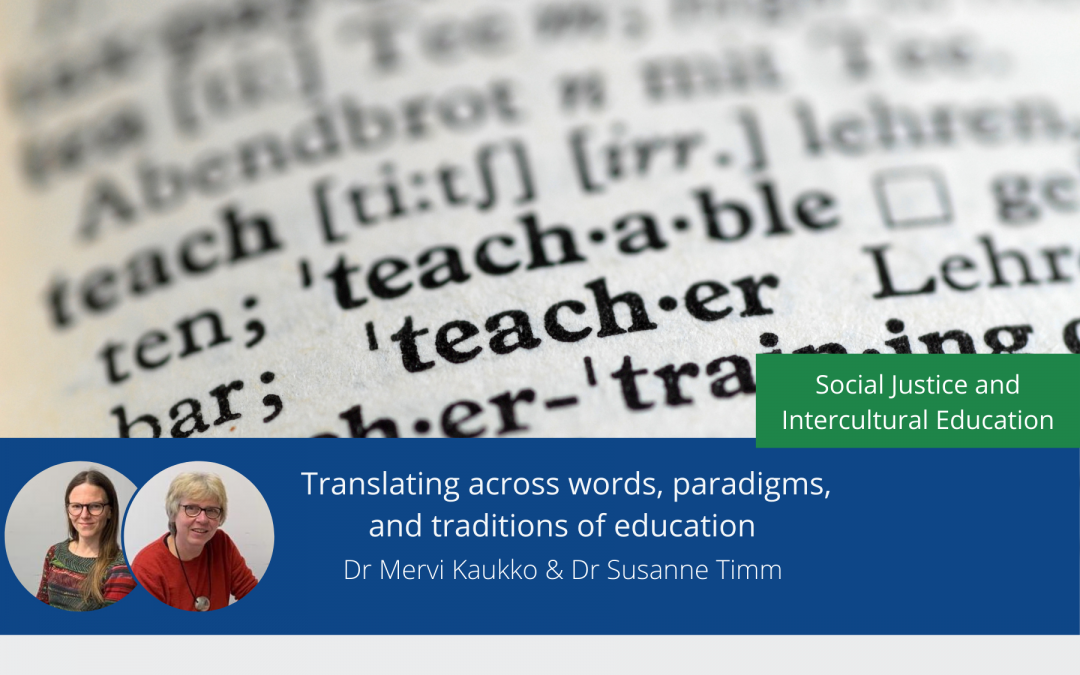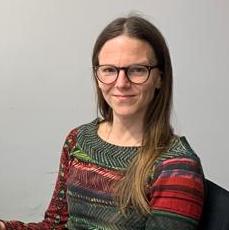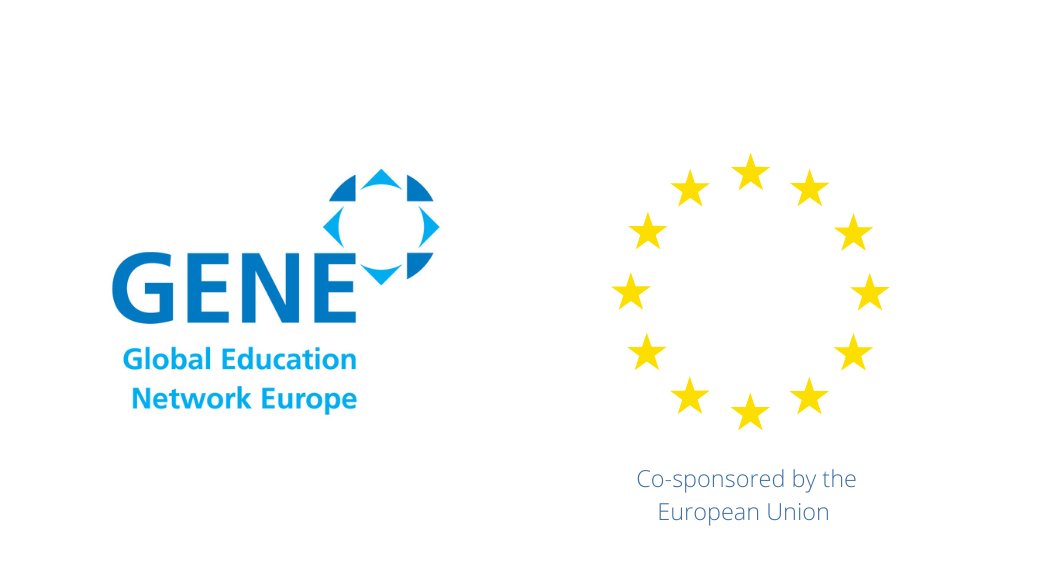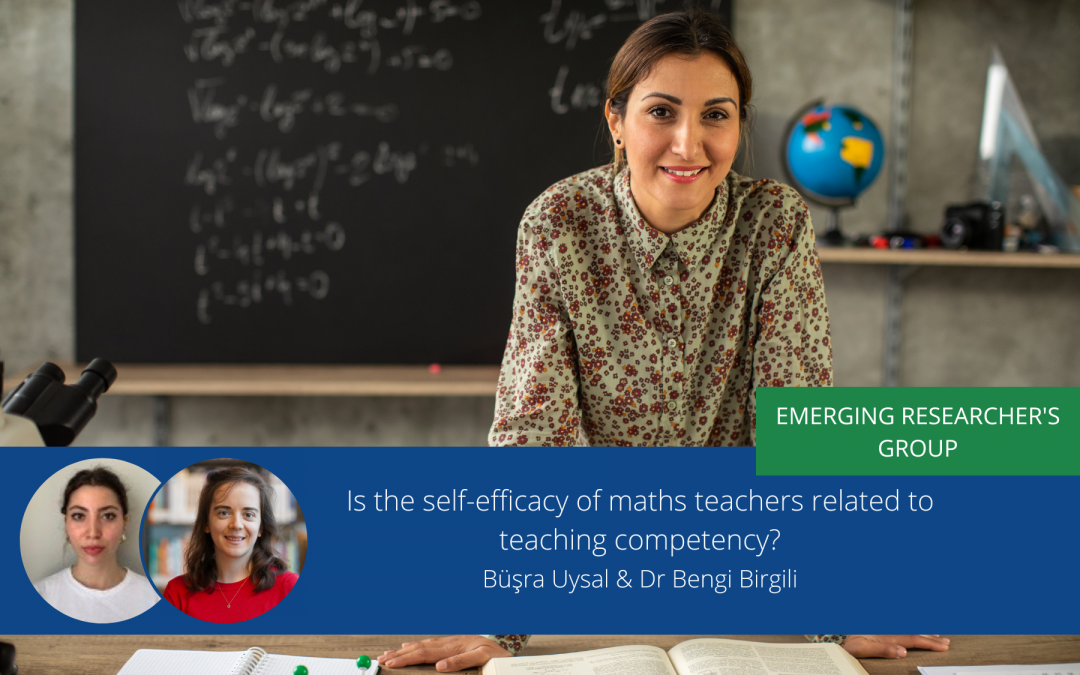
Is the self-efficacy of maths teachers related to teaching competency?
The role of teachers is one of the essential elements that ensure the proper functioning of the education system and the world for students’ benefit. In addition to guiding them academically, teachers can influence children’s future, making them better human beings. A teacher can instill content knowledge, life skills, good dispositions, traditional values, and modern-day issues to students.
Teaching mathematics goes beyond the knowledge capacity of teachers and pre-service teachers. In other words, equipping students with different 21st-century skills and attitudes is the main goal of teaching mathematics, rather than transferring content knowledge. The confidence teachers have in their planning and implementation skills affects their teaching and learning objectives in online education. A number of problems can arise in the classroom if the teacher is lacking in confidence. A teacher may have comprehensive mathematical knowledge and skills yet have low self-confidence while lecturing. They may not be able to use their expertise and abilities adequately in the classroom teaching process, leading them to perform their profession poorly. The self-confidence of the teacher is important in terms of providing more effective teaching to their students.
What is the meaning of maths self-efficacy?
As defined by Bandura (1997), mathematics self-efficacy is one’s beliefs or perceptions concerning their abilities in mathematics education. Mathematics self-efficacy is operationalized as a belief which should be internalized by teachers and pre-service teachers. On the other hand, teaching competencies can be defined as the knowledge and skills that they must perform in their profession effectively and efficiently. Without sufficient knowledge, enthusiasm, and self-efficacy in these areas, it is unlikely that future elementary teachers will be able to provide effective instruction (Battista 1986; Stevens & Wenner, 1996; Tosun, 2000).
Mathematics self-efficacy is different from teachers’ mathematics competencies. Teacher competencies refer to a teacher’s professional knowledge and expertise, while teacher self-efficacy is tied to a more general concept. Teacher self-efficacy is more than having technical experience and skills; it also includes confidence that one has in putting this knowledge and competencies into practice. Having this confidence helps to provide an effective teaching environment in the classroom and to manage the negativities that may be encountered in classroom management by strengthening the student-teacher relationship. Gavora (2010) pointed out that a teacher’s high self-efficacy enables them to use their professional knowledge and skills successfully. Students learn more from teachers who have high self-efficacy (Zuya et al., 2016).
In line with Küçükalioğlu and Tuluk (2021), mathematics teachers with high self-efficacy were observed to have a positive effect on students’ mathematical achievement. Therefore, the self-efficacy of mathematics teachers seems to be the determining factor in their way of teaching and behaviour in class. According to Bandura (1995), teachers with low self-efficacy tend to create an environment that has an adverse effect on students’ mathematical achievement. I would add that if a teacher does not attend their lesson prepared for the misconceptions about the related content that students may encounter, they may not notice the student’s current misconception, which may lead to the student’s learning based on faulty thinking and understanding.
The association between mathematics education, self-efficacy, and teaching competency
The question of how the mathematics competencies and self-efficacy of teacher candidates who grew up with technological advancements (i.e. the flipped learning approach) have been a matter of curiosity. What are the teaching competencies and self-efficacy of elementary mathematics pre-service teachers in teacher education at a foundation university?
When we look at the studies carried out to date in general, we can say that most of the studies (e.g., Çakıroğlu & Işıksal (2009); Gülten (2013)) examining the variables focused on gender, age, and grade level were conducted on pre-service teachers and teachers as study groups. Reviewing the previous studies, we observed that most of them were carried out in state universities, and that teacher education programs involved preservice mathematics teachers who were exposed to insufficient practicum. Having analyzed the literature, there was no research carried out on pre-service teachers who have been educated in a foundation university in Istanbul!
Considering that practicum courses attended by freshmen years were intensively included in the internship in order to improve pre-service teachers’ mathematics self-efficacy and mathematics teaching competencies, examining the relationship between mathematics self-efficacy and mathematics teaching competencies aims to bring a different perspective to the related literature.
Our research into self-efficacy and mathematics
We conducted a study with second, third, and fourth-grade teacher candidates at the department of Middle School Mathematics Teaching at MEF University in Istanbul, Turkey, in the 2021-2022 academic year. When we analyze the scores obtained through the questionnaires (Özgen & Bindak, 2008 for self-efficacy; Esendemir et al., 2015 for teaching competency), we can say that the self-efficacy of pre-service mathematics teachers is higher than their competence in teaching mathematics. There is a relationship between pre-service mathematics teachers’ mathematics self-efficacy and mathematics teaching competency. The results revealed that there is a statistically significant and positive relationship between the pre-service mathematics teachers’ self-efficacy and their teaching competencies. This result means that as mathematics teacher candidates’ teaching competencies increase, their self-efficacy also increases (Check for the full manuscript of the graduation thesis).
Conclusion
Key Messages
- Teachers’ self-confidence and self-efficacy skills are significant factors in providing more effective teaching to their students.
- Pre-service mathematics teachers’ self-efficacy was higher than their mathematics teaching competencies.
- Mathematics teachers’ self-efficacy seems to be the determining factor in their teaching styles and behaviour in the classroom and affects their teaching quality.
- There was a significant and positive relationship between the pre-service mathematics teachers’ self-efficacy and their teaching competencies.
- Teachers’ self-efficacy and teaching competencies should be sufficient for teaching in order for them to begin their professional careers properly.
Other blog posts on similar topics:

Büşra Uysal
Büşra Uysal is a mathematics teacher. She graduated from MEF University, Istanbul. She gained teaching experience in both systems including face-to-face and online systems intensively. She received a Mentoring Certificate (2020-2021) and has been a supervisor for university students. In the scope of the “University within School” project, she did tutoring lessons with students. Her professional interests are to provide students with mathematical thinking skills and to create effective classroom environments where students can discover information and share their ideas freely.
She worked as a volunteer teacher at the Youth Education Center (Sarıyer Gençlik Eğitim Merkezi, Istanbul) within the “Social Responsibility Project” scope. In 2022, she conducted research on Pre-service Elementary Teachers’ Self-Efficacy for Teaching Mathematics & Teaching Competency and presented at MEF University International Educational Sciences Student Conference (MEFEDUCON, 2022)
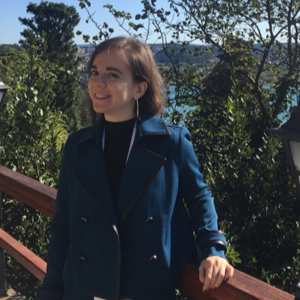
Dr Bengi Birgili
Research Assistant in the Mathematics Education Department at MEF University, Istanbul.
Dr Birgili is a research assistant in the Mathematics Education Department at MEF University, Istanbul. She experienced in research at the University of Vienna. Her research interests focus on curriculum development and evaluation, instructional design, in-class assessment. She received the Emerging Researchers Bursary Winners award at ECER 2017 for her paper titled “A Metacognitive Perspective to Open-Ended Questions vs. Multiple-Choice.”
In 2020, a co-authored research became one of the four accepted studies among Early-Career Scholars awarded by the International Testing Commission (ITC) Young Scholar Committee in the UK [Postponed to 2021 Colloquium due to COVID-19].
In Jan 2020, she completed the Elements of AI certification offered by the University of Helsinki.
Researchgate:https://www.researchgate.net/profile/Bengi-Birgili-2
Twitter: @bengibirgili
Linkedin: https://www.linkedin.com/in/bengibirgili/
ORCID:https://orcid.org/0000-0002-2990-6717
Medium: https://bengibirgili.medium.com
References and Further Reading
Bandura, A. (1995). Self-efficacy in changing societies. https://doi.org/10.1017/CBO9780511527692.
Bandura, A. (1997). Self-efficacy: The exercise of control. Freeman and Company Press.
Battista, M. T. (1986). The relationship of mathematics anxiety and mathematical knowledge to the learning of mathematical pedagogy by preservice elementary teachers. School Science and Mathematics, 86(1), 10–19. https://doi.org/10.1111/j.1949-8594.1986.tb11580.x
Çakıroğlu, E., & Işıksal, M. (2009). Preservice elementary teachers’ attitudes and self-efficacy beliefs toward mathematics. Education and Science, 34, 151. https://hdl.handle.net/11511/52775
Esendemir, Ö., Çırak, S., & Samancıoglu, M. (2015). Pre-service elementary math teachers’ opinions about mathematics teaching competencies. Gaziantep University Journal of Social Sciences, 14(1), 217–239.https://doi.org/10.21547/jss.256787
Gavora, P. (2010). Slovak pre-service teacher self-efficacy: Theoretical and research considerations. The New Educational Review, 21(2), 17–30. https://www.researchgate.net/publication/287424468_Slovak_Pre-Service_Teacher_Self-Efficacy_Theoretical_and_Research_Considerations
Gülten, D. Ç. (2013). An investigation of pre-service primary mathematics teachers’ math literacy self-efficacy beliefs in terms of certain variables. International Online Journal of Educational Sciences, 5(2), 393–408. https://iojes.net/?mod=makale_tr_ozet&makale_id=41128
Küçükalioğlu, T., & Tuluk, G. (2021). The effect of mathematics teachers’ self-efficacy and leadership styles on students’ mathematical achievement and attitudes. Athens Journal of Education, 8(3), 221–238. https://doi.org/10.30958/aje.8-3-1
Özgen, K., & Bindak, R. (2008). The development of a self-efficacy scale for mathematics literacy. Kastamonu Education Journal, 16(2), 517–528. https://doi.org/10.24106/kefdergi.413386
Stevens, C., & Wenner, G. (1996). Elementary preservice teachers’ knowledge and beliefs regarding science and mathematics. School Science and Mathematics, 96(1), 2–9. https://doi.org/10.1111/j.1949-8594.1996.tb10204.x
Tosun, T. (2000). The beliefs of preservice elementary teachers toward science and science teaching. School Science and Mathematics, 100(7), 374–379. https://doi.org/10.1111/j.1949-8594.2000.tb18179.x
Zuya, H, E., Kwalat, S, K., & Attah, B, G. (2016). Pre-service teachers’ mathematics self-efficacy and mathematics teaching self-efficacy. Journal of Education and Practice, 7(14), 93–98. https://www.researchgate.net/publication/303723566_Pre-service_Teachers%27_Mathematics_Self-efficacy_and_Mathematics_Teaching_Self-efficacy

